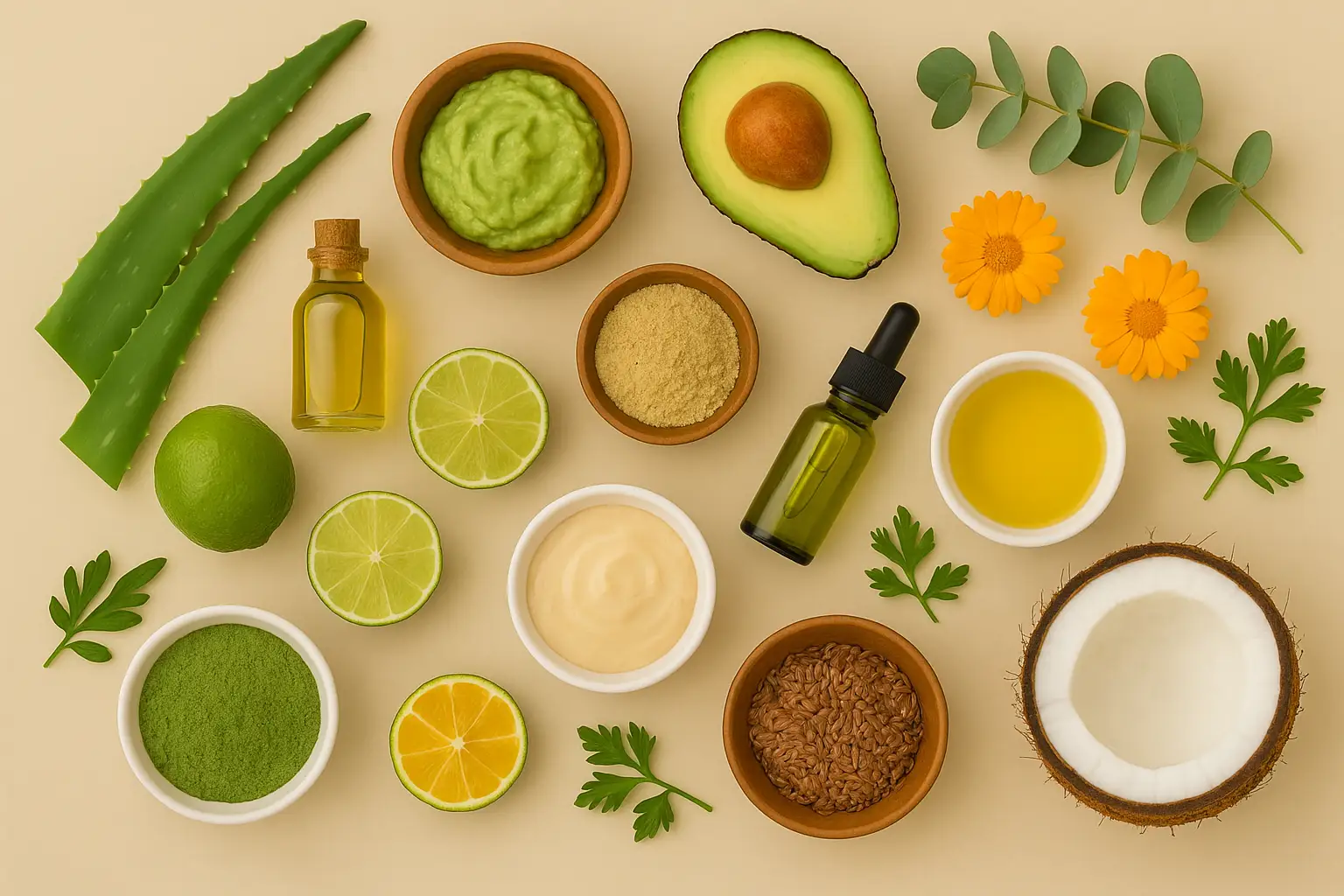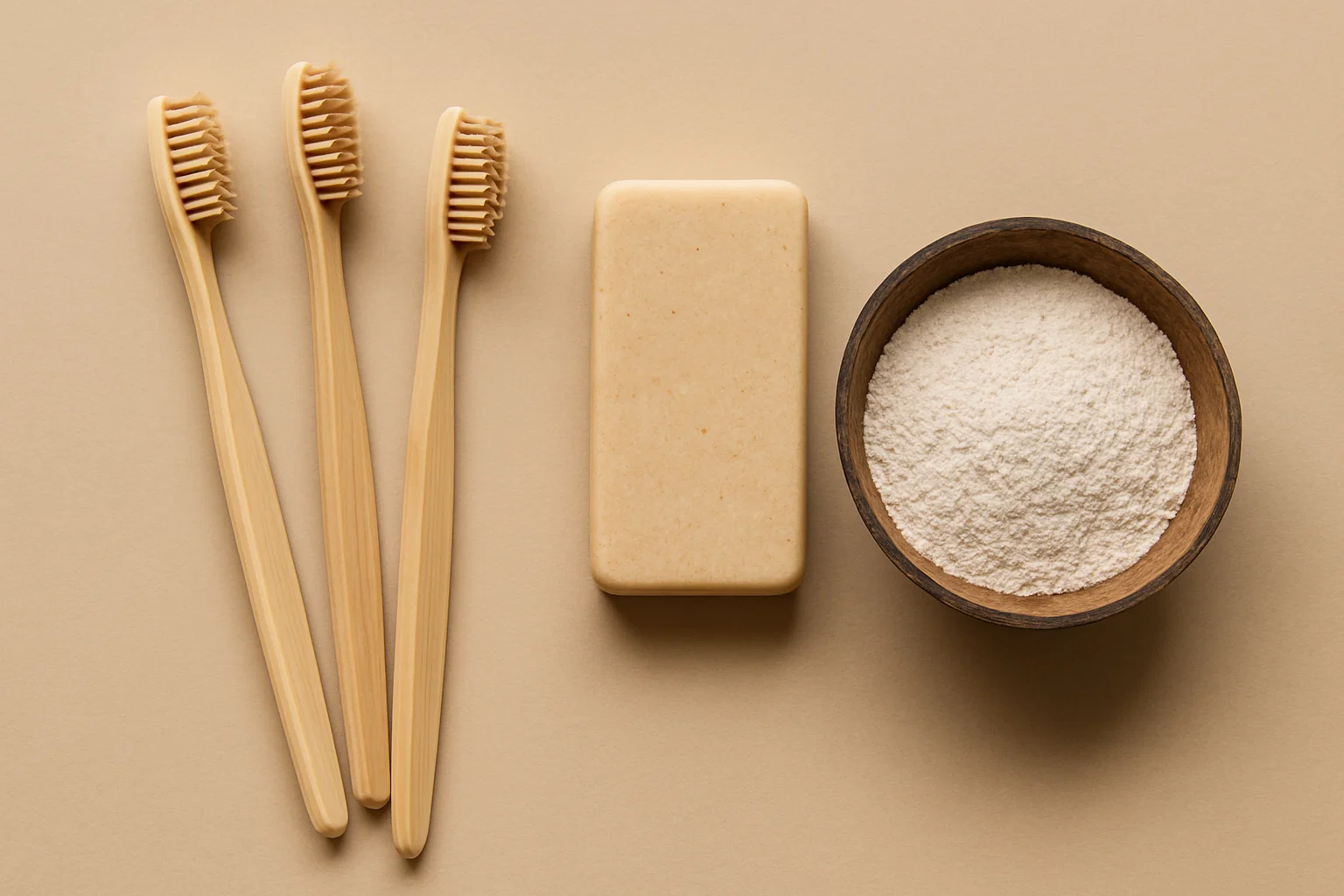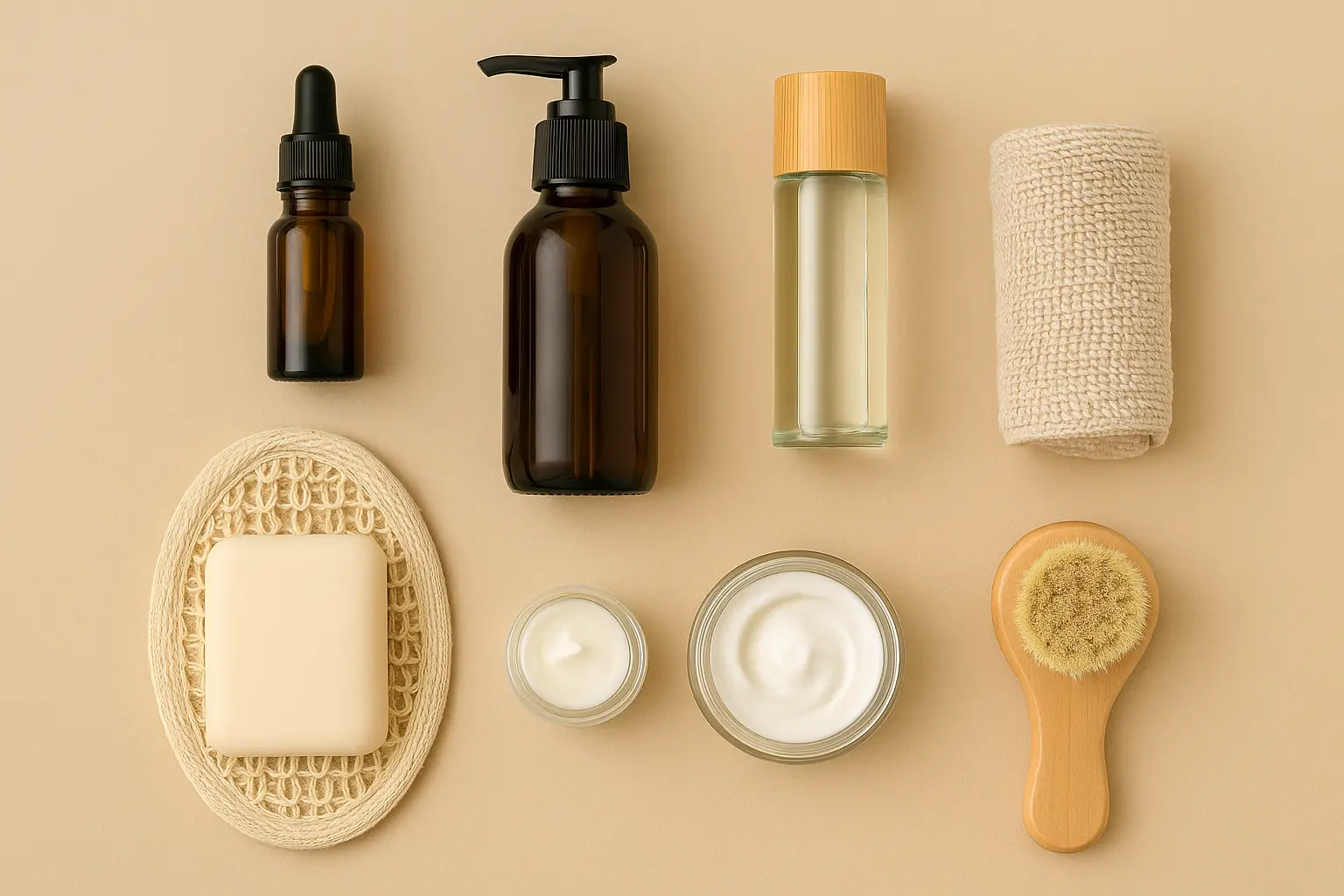Nature's Nurturing Touch: Unveiling the Power of Plant-Based Beauty Ingredients to Look For

In an era where conscious consumption is increasingly valued, the beauty industry is witnessing a significant shift towards plant-based ingredients. Consumers are seeking skincare, haircare, and makeup formulations that harness the potent power of nature, often aligning with a desire for gentler, more sustainable, and ethically sourced products. Navigating the vast landscape of botanical extracts, oils, and butters can be overwhelming, but understanding the key players can empower you to make informed choices that benefit both your well-being and the planet.
This exploration delves deep into the fascinating world of plant-based beauty ingredients, highlighting some of the most effective and sustainable options to look for in your formulations. Our objective is to thoroughly educate you on the remarkable benefits these natural treasures offer, encouraging and inspiring you to embrace the nurturing touch of nature in your beauty routine. By understanding the science and sustainability behind these ingredients, you can confidently curate a regimen that promotes radiant health while minimizing your environmental footprint.
The Abundant Pharmacy of Nature: Why Choose Plant-Based Beauty?
For centuries, cultures around the globe have relied on the botanical world for healing and beautification. Modern science is increasingly validating this ancient wisdom, revealing the rich array of vitamins, antioxidants, fatty acids, and other bioactive compounds found in plants that can profoundly benefit our skin and hair. Choosing plant-based beauty often translates to:
- Gentler Formulations: Many plant-derived ingredients are naturally gentler on the skin compared to harsh synthetic chemicals, making them suitable for sensitive skin types.
- Rich in Nutrients: Plant extracts, oils, and butters are often packed with vitamins, minerals, and antioxidants that nourish, protect, and revitalize the skin and hair.
- Sustainable Sourcing Potential: When sourced responsibly, plant-based ingredients can offer a more sustainable alternative to petrochemical-derived ingredients, supporting biodiversity and ethical harvesting practices.
- Biodegradability: Many plant-based ingredients are readily biodegradable, minimizing their environmental persistence after use.
The Star Players: Plant-Based Beauty Ingredients to Seek Out
Let's explore some key plant-based ingredients and their remarkable benefits for your beauty routine:
-
Aloe Vera: This succulent plant is renowned for its soothing, hydrating, and anti-inflammatory properties. Rich in vitamins, minerals, and amino acids, aloe vera gel is excellent for calming irritated skin, healing minor burns, and providing lightweight moisture. Look for it in moisturizers, after-sun products, and soothing gels. Sustainability considerations include responsible farming practices that conserve water.
-
Jojoba Oil: Technically a liquid wax derived from the seeds of the jojoba shrub, this oil closely mimics the skin's natural sebum, making it easily absorbed and suitable for all skin types, including oily and acne-prone. It's moisturizing, non-comedogenic, and can help regulate sebum production. Jojoba is a relatively drought-tolerant plant, making it a more sustainable oil option.
-
Rosehip Oil: Extracted from the seeds of rose bushes, this oil is a powerhouse of essential fatty acids, vitamins A and C, and antioxidants. It's known for its ability to improve skin elasticity, reduce the appearance of scars and fine lines, and brighten the complexion. Look for cold-pressed, organically grown rosehip oil for optimal quality and sustainability.
-
Green Tea Extract: Rich in potent antioxidants called polyphenols, particularly EGCG, green tea extract offers significant protection against free radical damage caused by environmental stressors. It also has anti-inflammatory and skin-soothing properties. It's commonly found in serums, moisturizers, and toners. Sustainable sourcing involves ethical farming practices and minimizing pesticide use.
-
Shea Butter: Derived from the nuts of the shea tree, this rich butter is packed with fatty acids and vitamins, making it an excellent emollient and moisturizer. It helps to nourish and protect dry, dehydrated skin and hair. Shea butter production can support economic empowerment for women in West Africa, but ensuring fair trade and sustainable harvesting practices is crucial.
-
Coconut Oil: This versatile oil is rich in lauric acid, making it a potent moisturizer and antimicrobial agent. It can be used in hair conditioners, body lotions, and even as a gentle makeup remover. However, it can be comedogenic for some individuals. Sustainability concerns revolve around deforestation associated with some coconut plantations; look for sustainably sourced and organic options.
-
Argan Oil: Extracted from the kernels of the argan tree, native to Morocco, this oil is rich in essential fatty acids, vitamin E, and antioxidants. It's deeply moisturizing for skin and hair, helps to improve elasticity, and adds shine. Argan oil production supports local communities in Morocco, but sustainable harvesting and fair trade practices are important considerations.
-
Chamomile Extract: Known for its calming and anti-inflammatory properties, chamomile extract is excellent for soothing irritated or sensitive skin. It can also have a mild brightening effect. Look for it in toners, cleansers, and calming creams. Sustainable sourcing involves responsible cultivation and harvesting of the chamomile flowers.
-
Sea Buckthorn Oil: This vibrant orange oil is packed with vitamins A, C, and E, as well as omega fatty acids. It's a potent antioxidant and can help to promote skin regeneration and improve elasticity. Sustainable harvesting of sea buckthorn berries is important to ensure the health of the plant and local ecosystems.
-
Hyaluronic Acid (Often Plant-Derived): While the name might sound chemical, hyaluronic acid is often derived through the fermentation of plant-based sources. It's a powerful humectant, meaning it attracts and retains moisture in the skin, leading to a plump and hydrated complexion.
Beyond the Ingredient List: Considering Sustainability
While identifying beneficial plant-based ingredients is important, true eco-conscious beauty goes beyond just the ingredient itself. Consider these sustainability factors:
- Sourcing: Look for brands that prioritize sustainably and ethically sourced ingredients, supporting fair trade practices and environmentally responsible farming.
- Organic Certification: Opting for products with certified organic ingredients ensures that the plants were grown without harmful pesticides and herbicides.
- Minimal and Recyclable Packaging: The packaging of plant-based beauty products also plays a crucial role in their overall sustainability. Choose brands that use minimal packaging made from recycled and recyclable materials.
- Cruelty-Free Practices: Ensure that the brand you choose does not test its products or ingredients on animals.
Embracing plant-based beauty is a journey towards a more holistic and sustainable approach to self-care. By understanding the remarkable power of these natural ingredients and considering the ethical and environmental implications of their sourcing, you can curate a beauty routine that nourishes your skin and hair while honoring the planet. The abundant pharmacy of nature offers a wealth of effective and sustainable solutions, inviting us to embrace its nurturing touch for a healthier and greener future.
Related Blogs

Stepping Lightly into Self-Care: Your Expansive Guide to the Best Zero-Waste Personal Care Swaps for Beginners
Insights on best zero-waste personal care swaps for beginners in a sustainable way.

Shielding Your Skin, Protecting Our Oceans: The Essential Guide to Clean, Reef-Safe Sunscreens
Insights on clean sunscreens that don’t harm coral reefs in a sustainable way.

A Guide to Eco-Conscious Period Products
Insights on eco-conscious period products in a sustainable way.

Scenting Sustainably: Choosing Eco-Friendly Alternatives to Perfume in Plastic Atomizers
Opt for solid perfumes, refillable glass bottles, or essential oil blends for fragrance without microplastics.

Smile Sustainably: Your Guide to Eco-Friendly Alternatives to Plastic Toothbrushes
Choose bamboo toothbrushes, recyclable heads, or miswak sticks for plastic-free dental care.

Uncomplicating Your Glow: Your Guide to Building a Minimalist Skincare Routine
Practical advice and actionable tips for how to build a minimalist skincare routine.
Stay in the Loop
Get tips and insights tailored to your interests — no spam, just sustainability.